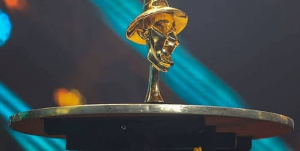Mozambique top court confirms ruling party’s win in controversial election
3 min readMozambique’s highest court, the Constitutional Council, has confirmed the ruling party Frelimo’s victory in the disputed October elections, a decision that has sparked widespread protests and accusations of election fraud. The ruling validates Daniel Chapo’s overwhelming presidential win as the Frelimo candidate and the party’s strengthened parliamentary majority, despite numerous allegations of vote-rigging.
The decision, made on Monday, came after months of tension following the election. Western observers and opposition parties criticized the vote as neither free nor fair, with allegations of manipulation and irregularities at the polls. However, Frelimo, which has held power since Mozambique’s independence in 1975, has repeatedly denied any wrongdoing, maintaining that the election was legitimate and transparent.
The ruling has further fueled anger among opposition groups, who contend that the election results were skewed in Frelimo’s favor. As a result, violent protests have erupted across the country, particularly in urban areas like the capital, Maputo. The unrest has escalated into violent clashes between protesters and police, leading to at least 130 reported deaths, according to Plataforma Decide, a civil society group monitoring the situation. These protests represent the most significant public opposition to Frelimo’s rule in decades.
Venancio Mondlane, leader of the opposition, has been a vocal critic of the election results. Fearing for his safety, Mondlane has fled the country, claiming that an independent vote count shows he was the true winner of the presidential race. Mondlane has called for a “popular uprising,” warning that Mozambique faces “difficult days ahead” in the wake of the court’s decision. His call for resistance has gained traction among opposition supporters, intensifying the political unrest.
Tensions remain high in Maputo, where the atmosphere is charged with anger and frustration. Streets are quieter than usual, with many businesses closed and major roads barricaded by police. The government has taken a heavy-handed approach to control the unrest, deploying security forces in the streets to prevent further violence. This response has only fueled the perception of repression among opposition supporters and civil society groups.
Daniel Chapo, the Frelimo candidate, is set to take office as Mozambique’s new president on January 15, succeeding outgoing President Filipe Nyusi. At 47, Chapo will become Mozambique’s first president born after the country gained independence from Portugal in 1975. His ascension marks a generational shift in leadership, but it comes at a time of deep political and social unrest.
The ongoing violence and the political crisis have highlighted the divisions within Mozambique’s society. While Frelimo maintains that the election was fair and that Chapo’s victory reflects the will of the people, the opposition insists that the results were manipulated, citing issues like voter suppression, irregularities in vote counting, and the intimidation of opposition candidates. These disputes have left the country at a crossroads, with questions about the future of democracy and governance in Mozambique.
As Chapo prepares to take office, the political situation remains precarious. The opposition is unlikely to accept the court’s ruling without further protest, and the risk of continued unrest is high. With the population divided and tensions running deep, the new president will face significant challenges in uniting the country and addressing the grievances of opposition groups and civil society.
The international community has expressed concern about the state of democracy in Mozambique, with calls for dialogue between the government and opposition to ease the tensions. However, with protests continuing and the political climate growing increasingly volatile, it is unclear how the country will navigate the months ahead.
The situation in Mozambique is still unfolding, and much remains uncertain as the country moves closer to the inauguration of its new president. What is clear, however, is that the country is at a crossroads, facing serious challenges to its political stability and democratic processes. The aftermath of the controversial election will likely continue to shape the future of Mozambique for years to come.







